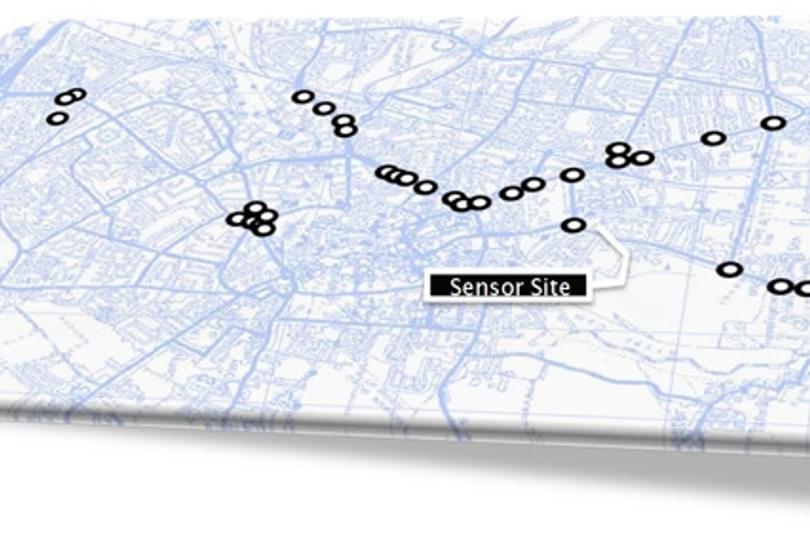
Two academics working at the forefront of the integration of sensors into society will give insights into their work in a seminar at the Oxford Martin School on Thursday (March 6).
With the advent of ‘smart homes’ (technology in which Google recently made a significant investment) and the prediction of smart cities, we could all soon be living our lives surrounded by sensors. Dr Niki Trigoni and Professor Marta Kwiatkowska of the Institute for the Future of Computing at the Oxford Martin School will explain their work on making sensor technology an efficient and beneficial part of our everyday lives.
Dr Trigoni’s work with Dr Andrew Markham at the Sensor Networks Group sees her grappling with the intricacies of indoor localisation, where GPS signals are too weak to be of use. “Indoors you get non-line-of-sight and multi-path radio channels which makes it hard to estimate position accurately," she said. “We’re designing signal processing techniques that can cope with sensor errors. We are also combining radio measurements with other data sources from cameras, magnetic fields and floor plans, in order to further improve accuracy".
Such technology could be used for any number of purposes, from targeted advertising in shopping centres, to monitoring patients at home or in hospital, or monitoring staff and equipment in work environments to improve safety and efficiency. Smartphones are often key, and experiments have already been carried out in the Pitt Rivers Museum in Oxford with the intention of building a system that can send visitors relevant information when looking at specific exhibits.
Professor Kwiatkowska ‘s work focuses on making sure that devices that have embedded processors and software are working correctly, to benefit applications where accuracy is of paramount importance, such as pacemakers, infusion pumps and self-driving cars.
“Progress is unstoppable – companies are putting embedded software at the heart of their devices,” said Professor Kwiatkowska. “We have seen a lot of development stimulated in the Internet of Things, which connects devices such as ordinary household appliances. Every home is a network that can be remotely controlled. Your fridge will be able to monitor use-by dates, tell you when you’re about to run out of milk, and even order the milk for you. These things are already happening.”